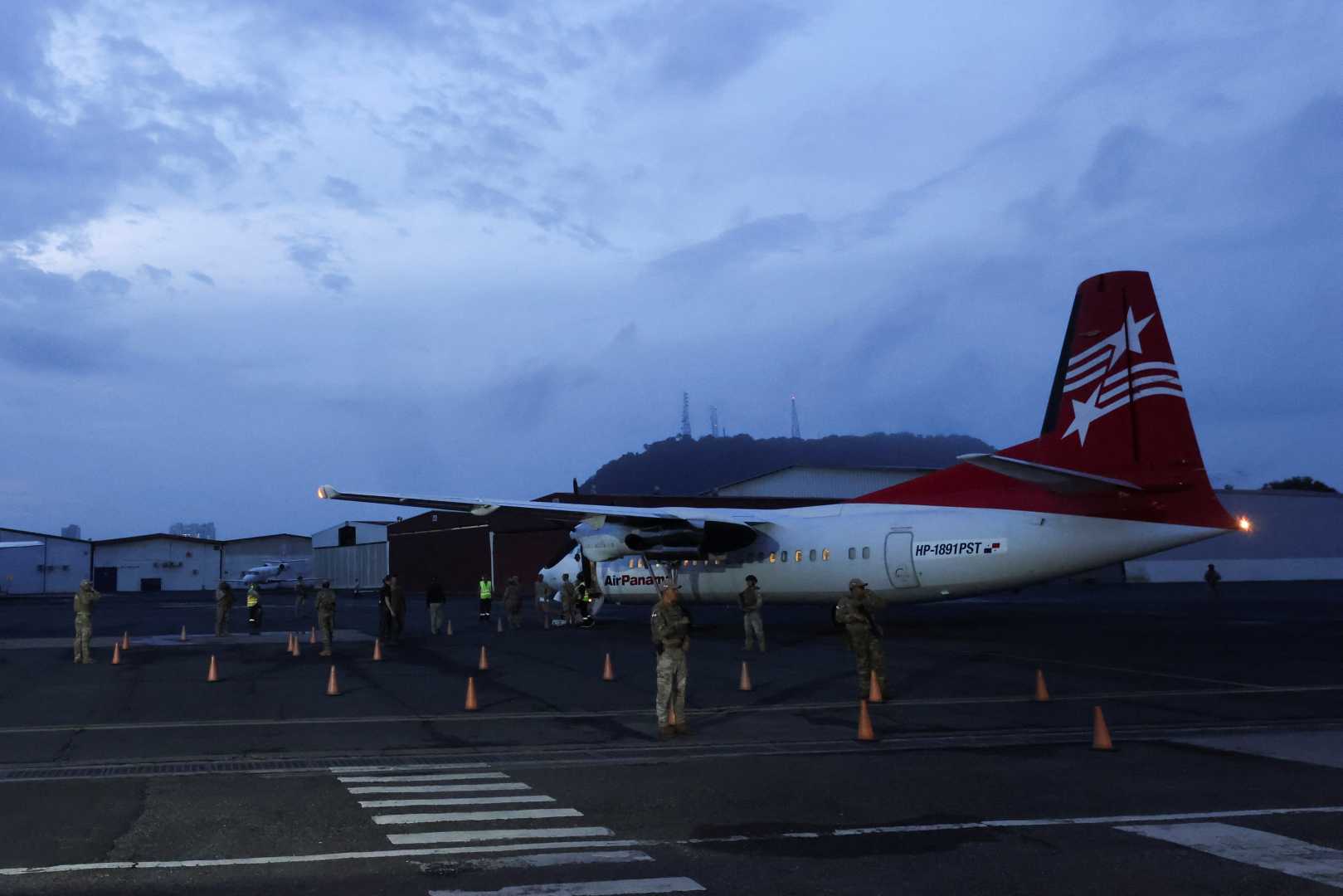Politics
US Begins Controversial Deportations to Panama Amid Immigration Crackdown

PANAMA CITY, PANAMA — The Trump administration has initiated deportations of unauthorized migrants to Panama, marking a significant diplomatic step as part of its stringent immigration policies. The first military flight arrived on Wednesday, carrying 119 deportees from various countries, including Afghanistan, China, India, Iran, and Uzbekistan.
According to internal federal documents obtained by CBS News, the operation aims to streamline the deportation process for migrants from Africa and Asia, who have historically posed logistical challenges due to the distances involved and resistance from their home countries.
Panama’s Foreign Ministry confirmed the reception of the deportees, noting that they were detained in the United States and did not have criminal records. The arrangement allows the United States to repatriate individuals through Panama, where a temporary shelter will facilitate their return to their home countries.
President José Raúl Mulino stated that the current flight is the first of three planned operations, which will eventually see approximately 360 migrants deported. “It’s not something massive,” Mulino said during a press briefing, while also highlighting the collaborative efforts between Panama and the U.S. to manage migration through the Darién Gap, a notorious transit route.
“We have been completely willing to participate and cooperate in this request,” said Deputy Foreign Minister Carlos Ruiz Hernández. The U.S. government will cover deportation costs with support from international immigration agencies.
The deportations signal a broader strategy to reduce unauthorized migration amid a crackdown by the Trump administration. Past attempts to repatriate migrants from Africa and Asia have been hampered by lengthy logistics and the refusal of receiving countries.
Beyond the immediate plans for deportations, the U.S. is also pursuing agreements with other Central American nations. Guatemala and El Salvador have already consented to accept migrants deported from the U.S. who are not citizens of their countries. Secretary of State Marco Rubio’s recent visit to Panama underscored the U.S.’s strategic interests in the region, including discussions about the Panama Canal and broader immigration controls.
Migration through the Darién Gap had seen a dramatic reduction, down about 90% in January compared to the same time last year, particularly due to the tightening of routes and increased enforcement.
While this U.S.-Panama agreement offers a temporary solution for those being deported, it raises questions about the long-term handling of migrants and their rights. There was no immediate response from the Departments of Homeland Security and State regarding further implications of these deportations.
The operation highlights the shifting dynamics as nations globally grapple with the complexities of managing migration flows, especially in the face of changing political climates and policies. As arrangements continue to form, further developments can be expected as countries navigate their diplomatic relations amid a keen focus on immigration enforcement.












